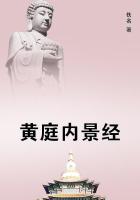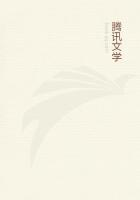In the meantime its value circulates piecemeal as a part of the value of the commodities whose continuous production it serves and it is thus gradually transformed into money until finally at the end of ten years it entirely assumes the form of money and is reconverted from money into a machine, in other words, has completed its turn-over. Until this time of reproduction arrives, its value is gradually accumulated, in the form of a money reserve fund to start with.
The remaining elements of productive capital consist partly of those elements of constant capital which exist as auxiliary and raw materials, partly of variable capital invested in labour-power.
The analysis of the labour-process and of the process of producing surplus-value (Buch I, Kap. V) [English edition: Ch. VII. -- Ed .]
showed that these different components behave quite differently as creators of products and as creators of values. The value of that part of constant capital which consists of auxiliary and raw materials -- the same as of that part which consists of instruments of labour -- re-appears in the value of the product as only transferred value, while labour-power adds an equivalent of its value to the product by means of the labour-process, in other words, actually reproduces its value. Furthermore, one part of the auxiliary substances -- fuel, lighting gas, etc. -- is consumed in the process of labour without entering bodily into the product, while the other part of them enters bodily into the product and forms its material substance. But all these differences are immaterial so far as the circulation and therefore the mode of turnover is concerned. Since auxiliary and raw materials are entirely consumed in the creation of the product, they transfer their value entirely to the product. Hence this value is circulated in its entirety by the product, transforms itself into money and from money back into the elements of production of the commodity. Its turnover is not interrupted, as is that of fixed capital, but passes uninterruptedly through the entire circuit of its forms, so that these elements of productive capital are continually renewed in kind.
As for the variable component of productive capital, which is invested in labour-power, be it noted that labour-power is purchased for a definite period of time. As soon as the capitalist has bought it and embodied it in the process of production, it forms a component part of his capital, its variable component. Labour-power acts daily during the period of time in which it adds to the product not only its own value for the whole day but also a surplus-value in excess of it. We shall not consider this surplus-value for the present. After labour-power has been bought and it has performed its function, say for a week, its purchase must be constantly renewed within the customary intervals of time. The equivalent of its value, which the labour-power adds to the product during its functioning and which is transformed into money in consequence of the circulation of the product, must continually be reconverted from money into labour-power or continually pass through the complete circuit of its forms, that is, must be turned over, if the circuit of continuous production is not to be interrupted.
Hence that part of the value of the productive capital which has been advanced for labour-power is entirely transferred to the product (we constantly leave the question of surplus-value out of consideration here), passes with it through the two metamorphoses belonging in the sphere of circulation and always remains incorporated in the process of production by virtue of this continuous renewal. Hence, however different otherwise may be the relation between labour-power, so far as the creation of value is concerned, and the component parts of constant capital which do not constitute fixed capital, this kind of turnover of its value labour-power shares with them, in contradistinction to fixed capital. These components of the productive capital -- the parts of its value invested in labour-power and in means of production which do not constitute fixed capital -- by reason of their common turnover characteristics confront the fixed capital as circulating or fluent capital.
We have already shown [Karl Marx, Capital, Vol. I, Ch. VI, pp.
167-76. -- Ed .] that the money which the capitalist pays to the labourer for the use of his labour-power is nothing more or less than the form of the general equivalent for the means of subsistence required by the labourer. To this extent, the variable capital consists in substance of means of subsistence. But in this case, where we are discussing turnover, it is a question of form. The capitalist does not buy the labourer's means of subsistence but his labour-power. And that which forms the variable part of his capital is not the labourer's means of subsistence but his labour-power in action. What the capitalist consumes productively in the labour-process is the labour-power itself and not the labourer's means of subsistence. It is the labourer himself who converts the money received for his labour-power into means of subsistence, in order to reconvert them into labour-power, to keep alive, just as the capitalist for instance converts a part of the surplus-value of the commodities he sells for money into means of subsistence for himself without thereby warranting the statement that the purchaser of his commodities pays him in means of subsistence.
Even if the labourer is paid a part of his wages in means of subsistence, in kind, this nowadays amounts to a second transaction. He sells his labour-power at a certain price, with the understanding that he shall receive a part of this price in means of subsistence. This changes merely the form of the payment, but not the fact that what he actually sells is his labour-power.















